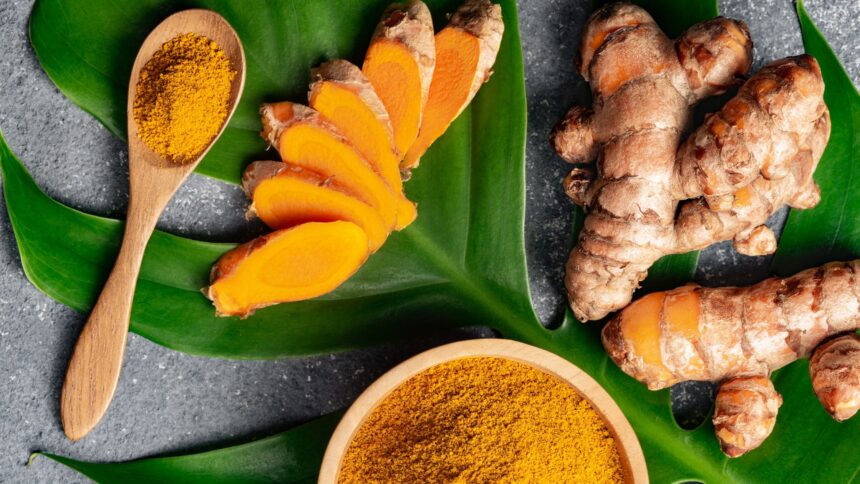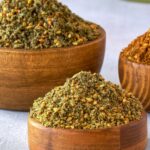Turmeric, often referred to as the “golden spice,” has long been celebrated for its myriad of health benefits. While most people are familiar with its anti-inflammatory and antioxidant properties, fewer are aware of its potential benefits in the realm of sexual health. In this article, we delve into the ways in which turmeric can enhance sexual well-being, providing a comprehensive overview of the science and traditional wisdom behind this potent spice.
Understanding Turmeric and Its Active Component
Turmeric is a bright yellow spice derived from the root of the Curcuma longa plant, commonly used in Indian and Southeast Asian cuisine. The primary active component of turmeric is curcumin, which is responsible for many of its health benefits. Curcumin is known for its strong anti-inflammatory, antioxidant, and antimicrobial properties, making it a powerful natural remedy for a variety of conditions.
The Link Between Turmeric and Sexual Health
1. Anti-Inflammatory Properties
Inflammation is a common underlying factor in many health issues, including sexual dysfunction. Chronic inflammation can affect blood flow and lead to conditions such as erectile dysfunction (ED) in men and decreased sexual arousal in women. Curcumin’s anti-inflammatory properties can help reduce inflammation, potentially improving overall sexual function.
2. Enhanced Blood Circulation
Good blood circulation is crucial for sexual arousal and performance. Curcumin has been shown to improve endothelial function, which is the health of the inner lining of blood vessels. By promoting better blood flow, turmeric can help enhance sexual arousal and performance in both men and women.
3. Hormonal Balance
Hormonal imbalances can significantly impact sexual health, leading to issues such as low libido and sexual dysfunction. Turmeric may help regulate hormones by reducing stress and inflammation. For instance, it can lower cortisol levels, a stress hormone that can negatively affect sex drive.
4. Boosting Libido
Turmeric has been traditionally used as an aphrodisiac in various cultures. Some studies suggest that curcumin can increase testosterone levels in men, which can enhance libido. Additionally, its mood-boosting properties can help improve sexual desire and enjoyment.
5. Reducing Anxiety and Depression
Mental health plays a crucial role in sexual well-being. Anxiety and depression can dampen sexual desire and performance. Curcumin’s ability to boost serotonin and dopamine levels can help alleviate symptoms of anxiety and depression, leading to a more satisfying sexual experience.
6. Antioxidant Benefits
Oxidative stress can damage cells and tissues, leading to various health issues, including sexual dysfunction. The antioxidant properties of curcumin help neutralize free radicals, protecting the body from oxidative damage and supporting overall sexual health.
Practical Ways to Incorporate Turmeric for Sexual Health
1. Dietary Inclusion
Incorporating turmeric into your diet is one of the easiest ways to reap its benefits. You can add it to soups, stews, smoothies, and teas. Traditional dishes such as curry are also an excellent way to consume turmeric regularly.
2. Golden Milk
Golden milk, a traditional Ayurvedic drink, combines turmeric with milk and other spices like cinnamon and ginger. This soothing beverage can be a delicious and effective way to incorporate turmeric into your daily routine, particularly for its sexual health benefits.
3. Turmeric Supplements
For those who find it challenging to include enough turmeric in their diet, supplements are a convenient alternative. Curcumin supplements are widely available and often come with added black pepper extract (piperine) to enhance absorption.
4. Topical Applications
Turmeric can also be used topically. Some cultures use turmeric-based pastes for skin health, which can indirectly benefit sexual health by boosting confidence and reducing stress related to physical appearance.
Potential Side Effects and Precautions
While turmeric is generally safe for most people, it’s essential to be aware of potential side effects and interactions with medications. High doses of turmeric can cause digestive issues, such as nausea and diarrhea. Additionally, turmeric may interact with blood-thinning medications and other drugs. It’s always best to consult with a healthcare provider before starting any new supplement regimen.
Scientific Support for Turmeric’s Sexual Health Benefits
Research on turmeric’s effects on sexual health is still in its early stages, but the existing studies are promising. For instance, a study published in the Journal of Sexual Medicine found that curcumin supplementation improved erectile function in diabetic rats, suggesting potential benefits for humans as well. Another study in the Journal of Ethnopharmacology highlighted turmeric’s traditional use as an aphrodisiac in various cultures, supporting its role in enhancing libido.
Traditional Wisdom and Cultural Significance
Turmeric has a rich history in traditional medicine systems such as Ayurveda and Traditional Chinese Medicine (TCM). In Ayurveda, turmeric is considered a warming spice that balances the doshas (body energies) and enhances sexual health. In TCM, turmeric is used to invigorate the blood and dispel stasis, which can improve circulation and overall vitality, including sexual health.
Real-Life Testimonials and Anecdotal Evidence
Many people around the world have shared their personal experiences with turmeric and its impact on their sexual health. While anecdotal evidence should not replace scientific research, these stories can provide additional insight into the practical benefits of this golden spice.
1. Increased Libido
Jane, a 45-year-old woman from California, reported an increase in her libido after incorporating turmeric tea into her daily routine. She noted that her overall mood improved, which she believes contributed to her enhanced sexual desire.
2. Improved Erectile Function
Michael, a 52-year-old man from New York, started taking turmeric supplements to manage his arthritis pain. To his surprise, he also experienced improvements in his erectile function. He credits the anti-inflammatory properties of turmeric for this unexpected benefit.
3. Enhanced Sexual Pleasure
Sara, a 38-year-old woman from London, used a turmeric-based skin cream to treat her acne. Not only did her skin improve, but she also felt more confident and less anxious about her appearance, which positively affected her sexual pleasure and intimacy with her partner.
How to Choose the Right Turmeric Product
With so many turmeric products on the market, it’s essential to choose high-quality options to ensure you get the most benefit. Here are some tips for selecting the best turmeric products:
1. Look for High Curcumin Content
Curcumin is the active ingredient in turmeric responsible for its health benefits. Choose products with a high percentage of curcumin to maximize effectiveness.
2. Check for Bioavailability Enhancers
Curcumin alone is not easily absorbed by the body. Look for supplements that include piperine (black pepper extract) or other bioavailability enhancers to improve absorption.
3. Opt for Organic and Non-GMO
Organic and non-GMO turmeric products are free from harmful pesticides and genetically modified organisms, ensuring a purer and safer product.
4. Read Reviews and Research Brands
Take the time to read customer reviews and research brands before making a purchase. Reputable brands with positive reviews are more likely to offer high-quality products.
Conclusion:
Turmeric’s potential benefits for sexual health are a promising addition to its already impressive list of health advantages. From enhancing blood circulation and balancing hormones to boosting libido and reducing anxiety, this golden spice offers a natural way to support sexual well-being. While scientific research is still evolving, traditional wisdom and anecdotal evidence provide compelling reasons to consider incorporating turmeric into your daily routine.
By understanding the link between turmeric’s properties and sexual health, you can make informed decisions about how to use this powerful spice to enhance your intimate life. Whether you choose to add turmeric to your diet, enjoy a soothing cup of golden milk, or take a supplement, the potential benefits are well worth exploring. As always, consult with a healthcare provider before starting any new health regimen, especially if you have existing medical conditions or are taking medications.
Embrace the golden spice and discover how turmeric can contribute to a healthier, more satisfying sexual life.
Frequently Asked Questions:
1. Can turmeric really improve sexual health?
Yes, turmeric has been shown to improve sexual health in various ways. Its active component, curcumin, has anti-inflammatory and antioxidant properties that can enhance blood circulation, balance hormones, and reduce stress and anxiety—all of which are crucial for a healthy sex life.
2. How should I incorporate turmeric into my diet for sexual health benefits?
There are several ways to include turmeric in your diet:
- Spices and Cooking: Add turmeric to soups, stews, curries, and even smoothies.
- Golden Milk: Make a traditional Ayurvedic drink by mixing turmeric with milk and spices like cinnamon and ginger.
- Supplements: If dietary inclusion is challenging, consider taking curcumin supplements, often combined with piperine for better absorption.
3. Are there any side effects of consuming turmeric?
Turmeric is generally safe for most people when consumed in moderate amounts. However, high doses can cause digestive issues such as nausea, diarrhea, and stomach cramps. It may also interact with blood-thinning medications and other drugs. Always consult your healthcare provider before starting any new supplement regimen.
4. How long does it take to see benefits from turmeric?
The time it takes to see benefits from turmeric can vary based on individual factors such as diet, lifestyle, and existing health conditions. Generally, people might start noticing improvements within a few weeks to a few months of consistent use.
5. Can women take turmeric for sexual health benefits?
Absolutely! Turmeric can benefit women by balancing hormones, reducing menstrual pain, and enhancing overall sexual health. Its anti-inflammatory and mood-boosting properties can also help alleviate symptoms of PMS and menopause, further supporting sexual well-being.
6. Does turmeric increase testosterone levels in men?
Some studies suggest that curcumin, the active ingredient in turmeric, can help increase testosterone levels in men. Higher testosterone levels can enhance libido and improve erectile function, contributing to better sexual health.
7. Is turmeric safe to use with other medications?
Turmeric may interact with certain medications, particularly blood thinners and medications for diabetes and acid reflux. It’s essential to consult with a healthcare provider before combining turmeric with any other medications to avoid potential interactions.
8. Can turmeric be used topically for sexual health benefits?
Yes, turmeric can be used topically, particularly for skin health. Healthy skin can boost self-confidence and reduce anxiety related to physical appearance, indirectly benefiting sexual health. However, be cautious as turmeric can stain the skin and clothing.
9. Are turmeric supplements as effective as the spice itself?
Turmeric supplements can be very effective, especially if they contain high concentrations of curcumin and bioavailability enhancers like piperine. Supplements are a convenient option for those who may not consume enough turmeric through diet alone.
10. What’s the best way to enhance the absorption of turmeric?
Curcumin, the active ingredient in turmeric, has low bioavailability, which means it’s not easily absorbed by the body. Consuming turmeric with black pepper (which contains piperine) can significantly enhance absorption. Additionally, consuming turmeric with healthy fats like coconut oil or olive oil can also improve its bioavailability.
11. Can turmeric help with erectile dysfunction (ED)?
Turmeric’s ability to improve blood flow and reduce inflammation can potentially help with erectile dysfunction. While more research is needed, some studies have shown promising results, particularly in cases where ED is related to poor circulation or inflammation.
12. Is it safe to take turmeric daily?
For most people, taking turmeric daily is safe and can be beneficial. However, it’s essential to stick to recommended doses and consult with a healthcare provider, especially if you have any underlying health conditions or are taking other medications.




